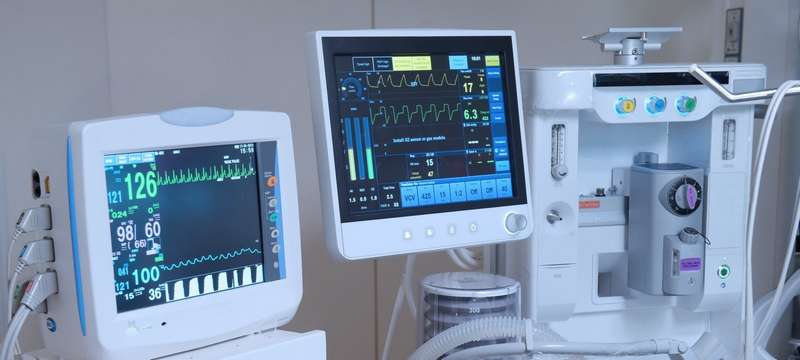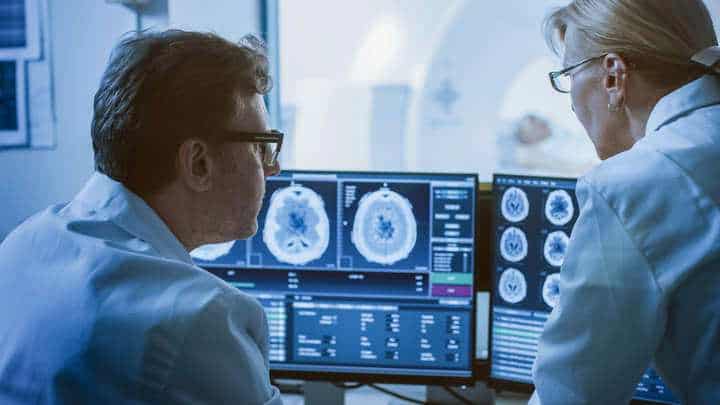Medical imaging plays a crucial role in the diagnosis and treatment of various medical conditions. The advent of artificial intelligence (AI) has revolutionized the field of medical imaging, making it faster, more accurate, and more efficient.
AI in Medical Imaging: An Overview
Artificial intelligence in medical imaging refers to the use of machine learning algorithms to analyze and interpret medical images. This technology has gained immense popularity in recent years, thanks to its ability to assist radiologists and clinicians in diagnosing diseases, localizing abnormalities, and predicting patient outcomes.

One of the key benefits of AI radiology software is its ability to process vast amounts of data rapidly, thus significantly reducing the time it takes to interpret images. AI can also assist in the standardization of image analysis, leading to more consistent and accurate results.
Here are some cutting-edge AI software applications in medical imaging:
Image Segmentation and Tumor Detection
AI algorithms are increasingly being used for image segmentation, which involves dividing an image into different regions of interest. In the context of medical imaging, this technology is particularly valuable for tumor detection and delineation.
AI can identify and outline tumors in radiological images, making it easier for clinicians to plan treatments.
Disease Classification and Diagnosis
AI-powered software can aid in the classification and diagnosis of diseases by analyzing medical images.
For instance, deep learning algorithms can accurately identify specific pathologies, such as lung nodules in chest X-rays, retinal abnormalities in ophthalmic scans, and abnormalities in mammograms.
These systems have the potential to detect diseases at an early stage, increasing the chances of successful treatment.
Cardiovascular Imaging
AI has made significant strides in cardiovascular imaging, helping in the analysis of echocardiograms, MRI scans, and angiography images.
These systems can assess cardiac function, detect anomalies in blood vessels, and predict cardiovascular events. Such advancements have the potential to improve the diagnosis and management of heart-related conditions.
Neuroimaging
AI is playing a crucial role in neuroimaging, assisting in the diagnosis and treatment of neurological disorders.

Automated systems can analyze MRI and CT scans to identify abnormalities in the brain, such as tumors, aneurysms, and lesions. This technology can save valuable time in diagnosing conditions like strokes and brain tumors.
Medical Image Enhancement
AI can be used to enhance the quality of medical images, making it easier for radiologists and clinicians to interpret them accurately.
Noise reduction, image sharpening, and contrast enhancement techniques provided by AI software can improve the overall quality of images, aiding in more precise diagnoses.
Personalized Treatment Planning
AI can help in tailoring treatment plans to individual patients by analyzing their medical images. For example, in radiation therapy, AI can optimize the treatment plan by considering the specific characteristics of a patient’s tumor and its location.
This results in more effective and precise treatment with minimal damage to surrounding healthy tissues.
Real-Time Imaging Analysis
AI software is being developed to analyze medical images in real-time during surgical procedures.
Surgeons can use augmented reality (AR) displays to overlay AI-generated information on the patient’s anatomy, helping them navigate and make critical decisions during complex surgeries.
Monitoring and Follow-Up
AI can be utilized for continuous monitoring and follow-up of patients by tracking disease progression and treatment efficacy. This is particularly important for chronic conditions like cancer, where regular imaging is required to assess the response to treatment.
The integration of cutting-edge AI software into medical imaging has the potential to transform healthcare in several ways:
- Improved Accuracy: AI systems can provide more accurate and consistent interpretations of medical images, reducing the chances of human error.
- Efficiency: By automating time-consuming tasks, AI can free up healthcare professionals to focus on more complex aspects of patient care.
- Early Detection: AI can identify abnormalities at an early stage, leading to timely interventions and improved patient outcomes.
- Personalized Medicine: AI can assist in tailoring treatments to individual patients, optimizing therapy, and minimizing side effects.

